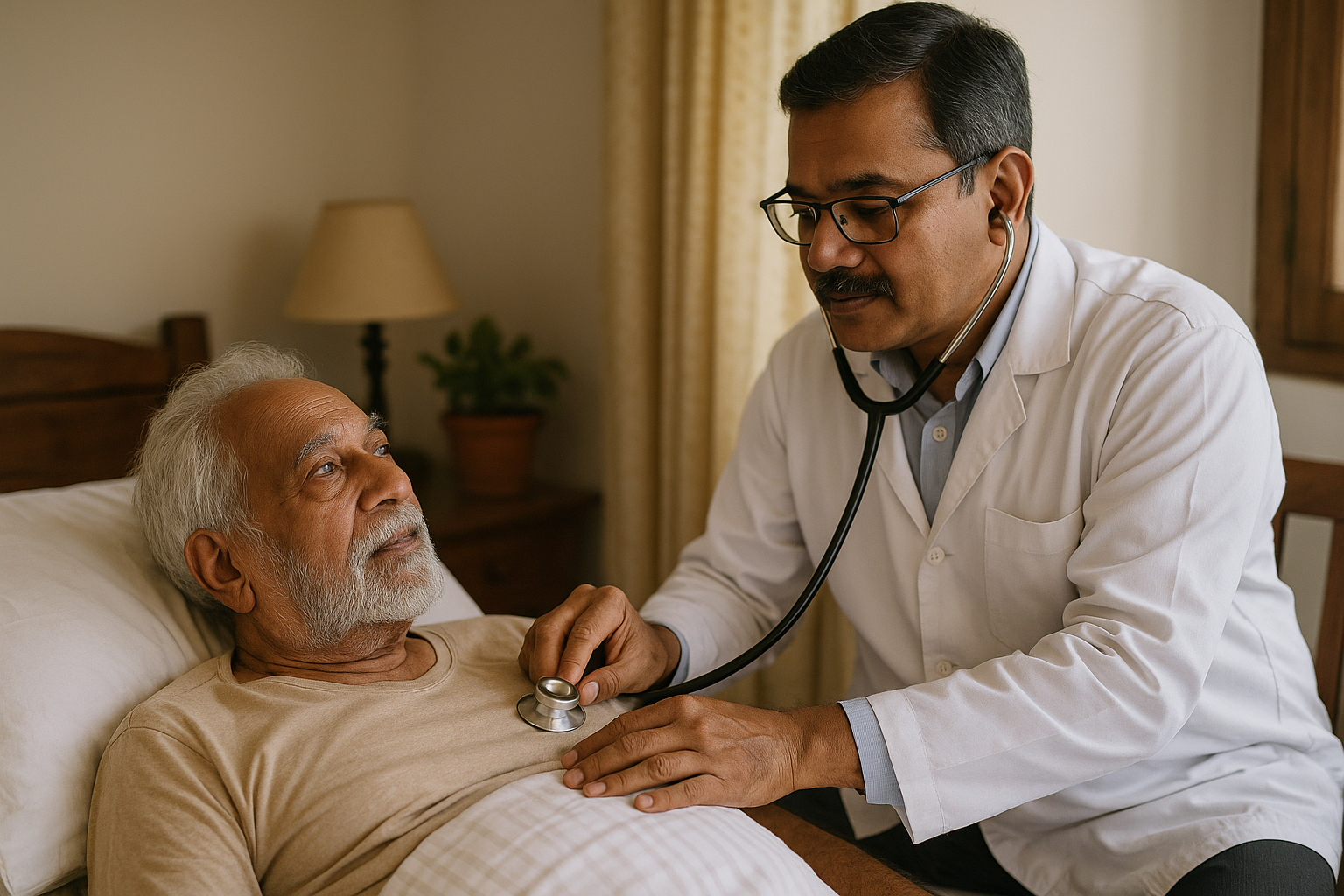If you have a doctor coming to your home, a little planning can make the visit easy and helpful. Whether this is a routine check-up or something more specialized, getting ready in advance helps both you and the doctor have a better experience. The tips below explain step-by-step how to make your doctor’s home visit go smoothly.
Before the Doctor Arrives: Steps to Take
Being ready ahead of time makes the visit feel less rushed and helps the doctor focus on your needs.

Get All Medical Documents in One Place
- Gather your medical records. Collect any test results, lists of current medicines, and notes from earlier appointments.
- Make a brief summary of your medical history. This helps the doctor understand your health quickly.
- Keep your insurance information and identification handy, just in case it’s needed.
Set Up a Calm and Clean Space
- Choose a bright, quiet spot. Pick a place where the doctor can work with little noise or fuss.
- Make sure there are clear paths. This is very important if someone in your home has trouble moving around.
- Arrange comfy chairs for yourself and the doctor.
%20(1).png)
Why Preparation Matters
Getting ready for a doctor’s home visit helps both you and the doctor. It keeps things organized and relaxed, so the doctor can focus on your health instead of searching for records or waiting for quiet.
Perks of Having a Doctor Visit Your Home
- Comfort: No need to travel or wait in a crowded clinic.
- Personal touch: The doctor can see how you live, which helps them understand your situation better.
- Less risk: Being at home lowers your chances of picking up new illnesses you might catch at clinics.
Common Reasons to Request a Home Visit
- Ongoing care for chronic illness (like diabetes or heart problems)
- Recovery after surgery
- Palliative care for those who need comfort at home
- Newborn or infant care
- Elderly care, especially for people who find it hard to get out

What Should You Expect During the Visit?
- Most home visits take 30 minutes to an hour.
- The doctor will check your health, review medicines, talk about your symptoms, and suggest changes if needed.
- Conversations and treatments will be private and respectful.
Talk Things Over with Family or Caregivers
- Let everyone know when the doctor is coming. This avoids distractions or confusion.
- Share the plan, so everyone knows what to expect and how to help.
- After the visit, discuss the doctor’s advice and what to do next.
Home Visit Checklist: Things to Have Ready
- Medical tools like a thermometer, blood pressure, or blood sugar meter if you use them
- All your medications and supplements
- A basic first aid kit

Questions to Ask Your Doctor
- Will there be any changes in my treatment?
- How can I manage my symptoms or side effects better?
- Should I plan for follow-up visits or testing?
Medicine Safety: Stay Organized
- Double-check your medicine doses with the doctor.
- Ask about possible side effects or drug interactions.
- Make sure your prescriptions are current and find out how to refill them.
How to Make the Doctor’s Visit Easy for Everyone
Good communication and simple steps can turn a medical visit into a relaxed meeting where real progress is made.
- Make a list of questions for the doctor ahead of time.
- Turn off electronics and keep pets or visitors away during the check-up.
- Be prepared to talk about symptoms or questions you may have.
Time Tips for the Visit
- Be ready when the doctor arrives to use the appointment time well.
- Tackle the biggest health concerns first, to be sure nothing is missed.
- Write down what the doctor says, so you remember the instructions later.
.png)
What to Do After the Doctor Leaves
- Go over the doctor’s tips and be sure you understand what to do next.
- Follow advice about medicines or lifestyle changes.
- Book any future tests or visits as needed.
Extra Tips for Special Situations
- For those who use wheelchairs or walkers, keep paths clear and wide.
- Make sure special equipment fits and works well at home.
- Older adults or people with disabilities might need a helper to join the visit.
- Keep the room comfortable and clean for safety and health.
By using these practical tips, your home visit can become a safe, helpful experience. At drmorepenhome.com, you’ll find the support and equipment you need for expert care at home.
FAQs
What will happen during the visit?
The doctor will ask about your health, do an exam, and may update your treatment. Visits last about half an hour to an hour.
How should I set up my home for the doctor?
Find a clean, quiet space with good light. Keep all records and equipment nearby.
Can I ask for special tests?
Yes, but not every test can be done at home. Tell the doctor your needs beforehand.
What should I talk about with the doctor?
new symptoms, changes in your medicine, and ask about ways to stay healthy.
How often do I need home visits?
It depends on your health. Some people need frequent visits, others just once or twice a year. The doctor can help you decide.
.png)



.png)
.png)
.png)
.png)
.png)
.png)
.png)

.png)
.png)
.png)

.png)
.png)
.png)
.png)
.png)
.png)

.png)
.png)

.png)
.png)
.png)

.png)

.png)


.png)







